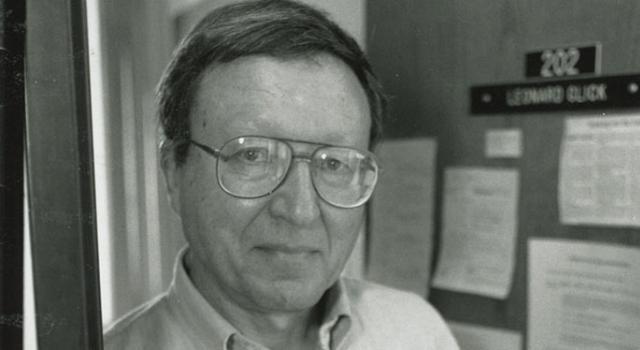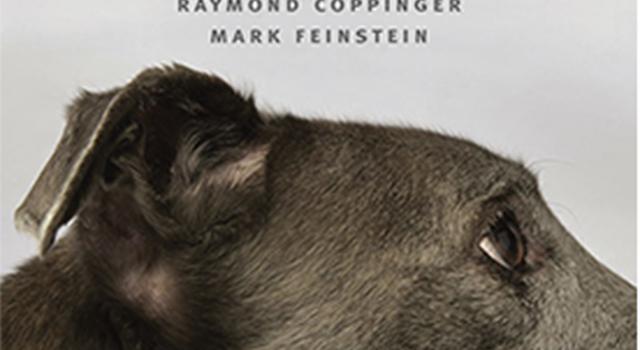Hampshire Mourns the Death of Founding Science Professor John M. Foster
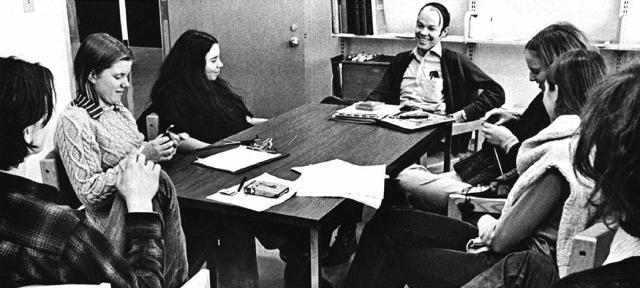
The professor of biology and biochemistry was one of the College’s first faculty members, an avid environmentalist, and a cofounder of the original School of Natural Science.
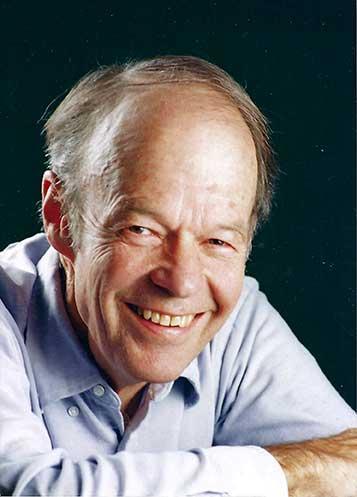
John Foster taught at Hampshire from 1969 to 1994, when he retired. He died on January 4, 2024.
Foster and close colleague Professor Raymond Coppinger (who died in 2017) were the first full-time faculty members hired for the new Natural Science school being developed at Hampshire. Both were eager to be part of Natural Science’s Dean Everett Hafner’s plan, described as containing “ambitions for the study of science and mathematics in unique substance and form, calling for a turnover of methods and ideas deeply rooted in American education.” Both were committed to the vision of Hampshire as an alternative in higher education, driven to upend the traditional structure of teaching and learning. Both were also invested in new approaches to environmental sustainability.
Foster’s son Jeff recalls the early years: “The summer before my dad started at Hampshire, he was asked to teach a graduate biochemistry course at UMass. He jumped at the chance to try something new. He looked at the course materials: textbook, lab notebook. Boring! He asked if he could ‘throw the thing out and start over.’ His idea was to use the primary literature as the basis for learning. He taught it as a series of projects. There were four teaching assistants and 45 students. At the end of the course the assistants told Dad, ‘We gotta hand it to you. That was a big success!’
“This course laid the groundwork for Dad’s popular Enzymes course at Hampshire. He used the primary literature instead of textbooks. Homework was to write one-page summaries of articles. These told him a lot about the students’ initial understanding. He would start lectures by asking for questions from the students. He wrote these on the board and used them to make an outline of the day’s lecture. The lab periods started at 1:30 p.m. Dad’s deal with the students was that he would be the last to leave the lab — his record was 3:00 a.m.!
“He received many compliments about this course. Eventually, he wrote an article about it that was published in BioScience (1979). Not long afterwards, a publisher contacted him about creating a textbook and lab workbook based on the course. Dad turned down the offer because the creation of a textbook was at odds with a learning approach based on the primary literature.”
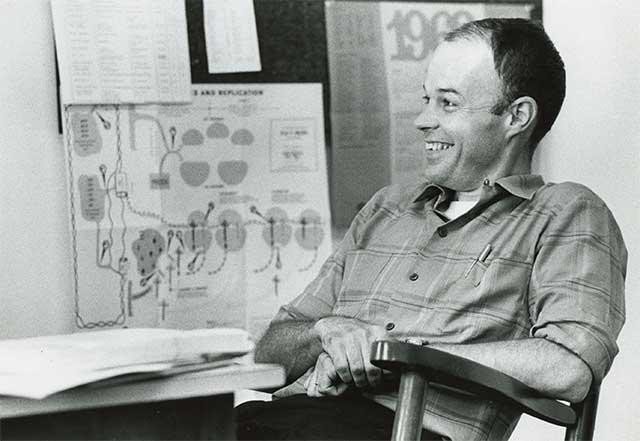
“John worked with the rest of the founding faculty (those hired before fall 1970) to create a radical academic structure and curriculum from scratch, based on a vision of higher education proposed by Franklin Patterson and Chuck Longsworth,” said Hampshire Professor Emerita of Biology Merle Bruno. “John’s experience, temperament, and genuine belief in what he and his colleagues and prospective students could achieve made him a perfect member of this elite group. When I applied to the faculty, in 1971, John’s candid evaluation of what was working so far, what wasn’t, and what could be is what convinced me to accept the position. His guidance and mentoring in those first few years gave me the confidence to learn from those early faculty, not to copy them.”
A proposal from Foster and Coppinger on designing an environmentally balanced college campus shows that Hampshire always had the goal of environmental sustainability at the core of its mission, and that the two biologists were instrumental in the earliest implementation of those values.
Coppinger wrote in the October 27, 1989, issue of the former campus paper, The Permanent Press:
“Before the first student had arrived, John Foster and I wrote a position paper entitled “The Jungle at the Temple Door,” to set forth a philosophy of land management and campus design which would be championed by this infant teaching institution. John and I and others were hired in part at the end of the sixties to develop a curriculum for the new environmental movement and to profess a rational ecological approach to the earth.”
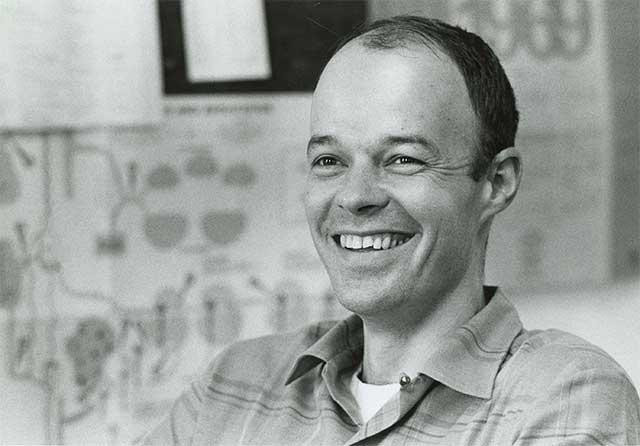
For the Spring/Summer 2000 issue of Hampshire’s former alumni magazine, Non Satis Scire, in a section titled “You must remember this . . . faculty and staff reminisce,” Foster told this story:
“One favorite memory is a student’s Division I exam. She wanted to see if one or more of her bread recipes could be used as the only food in the diet (a potentially useful idea for Third World countries). At my suggestion, she raised groups of mice on her breads, with a control group on commercial mouse chow, and tracked their growth by weighing each mouse daily. She had to learn how to handle the mice, weigh the wriggling animals, keep accurate records, and use a computer to analyze the data.
“She found that the mice raised on rye bread did very poorly, confirming, to her delight, what she later found in the literature. For the final meeting the student brought in a fresh-baked loaf of each kind of bread and a plate of butter. The media got wind of this, but what appeared in the newspaper missed the point, as so often happened in the early days of Hampshire. The exam was billed as a project on bread-making, rather than a lovely piece of scientific investigation.”
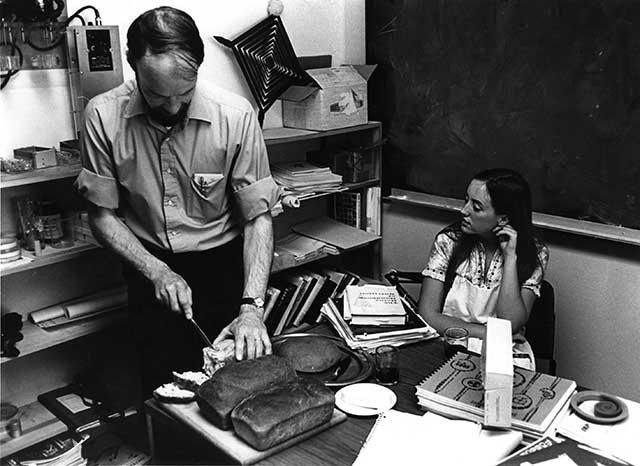
Foster majored in chemistry at Swarthmore College, earned his Ph.D. in biochemistry from Harvard Medical School, and completed postdoctoral studies at the Massachusetts Institute of Technology. He was commissioned as a first lieutenant in the U.S. Army and was in charge of a medical laboratory in Japan.
Before arriving at Hampshire, Foster taught at Boston University and worked with the National Science Foundation evaluating undergraduate programs in biology, a perfect entrée to his work at the College. He was a member of Sigma Xi (the Scientific Research Honor Society) and the American Association for the Advancement of Science.
A memorial service will be held on March 2 at 2 p.m. at the Amherst Unitarian Church.
Black and white photos courtesy of Hampshire Archives. Photographers include: Steve Van Meter, Jeffrey Coolidge, and Gabriel Cooney. Color photo courtesy of Jeff Foster.


